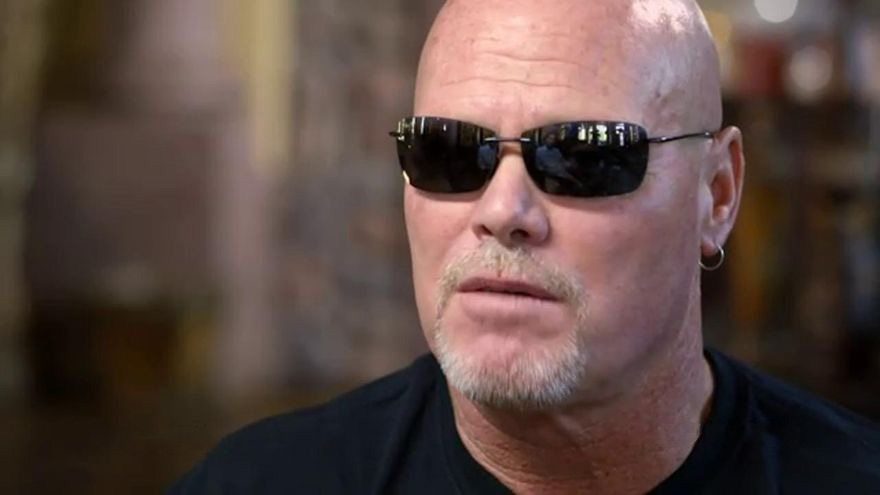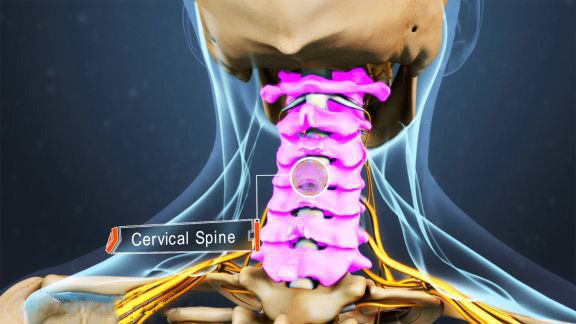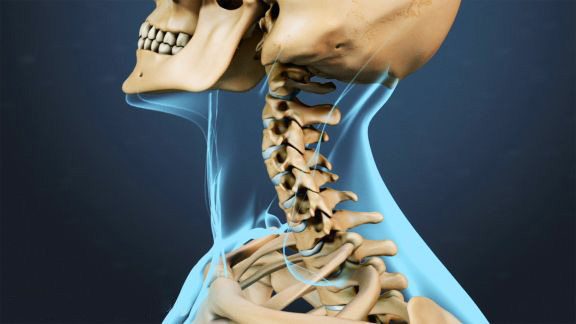Table of Contents
Jim McMahon Hope For A Better Tomorrow
Jim McMahon knows the questions will come — about his health, about his mind, about the head trauma he has experienced in his life after football that, for long stretches, has left him severely depressed and debilitated.
Yet on Tuesday evening, as McMahon arrived at Soldier Field for a 30-year reunion celebration of the Bears‘ 1985 Super Bowl season, the charismatic quarterback expressed at least some hope.
His severe headaches and overall mental well-being?
“Some days better than others,” McMahon said. “I don’t know when it’s going to happen. Whenever my neck gets out of alignment and fluid starts backing up into my brain, it’s miserable until I get it fixed and get it adjusted. Then the pain at least goes away.”

Watch Cervicogenic Headache Video
McMahon’s health issues have been well documented. He has been diagnosed with early onset dementia and still struggles with memory loss, severe headaches and depression. At times, the pressure on his skull becomes overwhelming. He experiences vision problems and speech difficulties.
But McMahon, 56, also believes he experienced a medical breakthrough recently after chiropractors in New York contacted him in their belief they could help alleviate some of the major problems he had been experiencing.
In ESPN’s forthcoming “30 for 30” documentary, “The ’85 Bears” — which will be shown at a private advance screening Wednesday night at AMC River East with McMahon expected to be in attendance — McMahon’s union with Atlas Orthogonal chiropractor Scott Rosa is chronicled as he continues to deal with the probability of significant brain damage.
In the film, Rosa reveals his diagnosis of McMahon, which showed that some of the former quarterback’s pain and head problems stemmed from neck misalignment that was restricting the flow of spinal fluid and causing toxic proteins to pool in his brain.
McMahon subsequently has received treatment that adjusts his spinal cord and regulates the flow of spinal fluid. In the film, McMahon said the first time he had the procedure, “it was like the toilet flushed. I could feel this stuff actually leaving my brain.”
Suddenly, his vision and speech improved.
“Thank God those doctors in New York found the problem,” he added Tuesday evening. “Had I gone to a neurosurgeon, they probably would have just drilled a hole in my head and drained the fluid and not found the problem. These guys at least found the problem and can keep me semi-coherent most of the time.
“I know when (the problem) starts happening. I start getting headaches and all I want to do is lie down.”
McMahon has been told to return to New York for treatment every three to four months but believes he may need to increase the regularity of those visits.
“Something’s just not right yet,” he said. “I have two blockages in my neck that they’re concerned about. And the degeneration of some of my disks is not doing too good. Now that I know what’s going on, it’s not frightening. I just know what I have to do when it happens.”
Champion Mark Collins Tackles Pain with Chiropractic Care

What Is Causing My Chronic Neck Pain?
The neck—or cervical spine—is a coordinated network of nerves, bones, joints, and muscles directed by the brain and the spinal cord. It is designed for strength, stability, and nerve communication.
Commonly, there are a number of problems that cause pain in the neck. Additionally, irritation along the nerve pathways can cause pain into the shoulder, head, arm, and hand. Irritation of the spinal cord can cause pain into the legs and other areas below the neck.

There are a number of problems that can cause pain in the neck.
Watch: Cervical Spine Anatomy Video
Most instances of neck pain will go away within a few days or weeks, but pain that persists for months could signal an underlying medical cause that needs to be addressed—in some instances early intervention may be necessary for the best results.
See Neck Cracking and Grinding: What Does It Mean?
Neck Pain Range of Symptoms
Neck pain can feel like any of the following:
- Stiff neck that makes turning the head difficult
- Sharp or stabbing pain in one spot
- Soreness or tenderness in a general area
- Pain that radiates down into the shoulders, arms, or fingers; or radiates up into the head
In some cases, other symptoms associated with the neck pain are even more problematic, such as:
Tingling, numbness, or weakness that radiates into the shoulder, arms, or fingers
Trouble with gripping or lifting objects
Problems with walking, balance, or coordination
Loss of bladder or bowel control
Neck pain might be minor and easily ignored, or it can be excruciating to the point where it interferes with important daily activities, such as sleep. The pain might be short-lived, come and go, or become constant. While not common, neck pain can also be a signal of a serious underlying medical issue, such as meningitis, or cancer.
See Addressing Pain and Medical Problems Disrupting Sleep

Cervical spine problems can be accelerated by an injury, such as strain or sprain.
Watch: Neck Strains and Sprains Video
The Cervical Spine and What Can Go Wrong
The neck, or cervical spine, has the important job of providing support and mobility for the head, which can weigh about 11 pounds—the approximate weight of a medium bowling ball.
See When Neck Cracking Needs Medical Attention
The cervical spine begins at the base of the skull and through a series of seven vertebral segments, named C1 though C7, connects to the thoracic, or chest, region of the spine, at the C7-T1 level.
See Thoracic Spine Anatomy and Upper Back Pain
With the exception of the top level of the cervical spine, which primarily provides rotation for the skull, most levels of the cervical spine can be described as follows:
- A pair of facet joints connect two vertebrae, enabling forward, backward, and twisting motions
- In between the vertebrae is a disc, which provides cushioning, spacing, and coordination
- Nerve roots extend from the spinal cord and exit through the neural foramina (holes in the bones) located on the left and right sides of the spine
Most problems with the cervical spine develop over time, but they can also be caused or accelerated by an injury.
More Info:
- Neck Pain Symptoms
- Diagnosing Neck Pain
- Neck Pain Causes
- Treatment for Neck Pain
- Surgery for Neck Pain Symptoms
- Neck Pain Causes Video
Various problems in the cervical spine can compress a nerve root or the spinal cord and cause neck pain and/or neurological (pinched nerve) symptoms. A few examples would be if a disc degenerated and pushed into a nerve, or similarly if bone spurs grew on facet joints to the point that they encroached on a nerve.
See Cervical Pain from Joint Degeneration
The Course of Neck Pain
Neck pain is common among adults, but it can occur at any age. In the course of a year, about 15% of US adults have neck pain that lasts at least one full day.1
Neck pain can develop suddenly, such as from an injury, or it may develop slowly over time, such as from years of poor posture or wear and tear.
See How Poor Posture Causes Neck Pain
The pain can usually be alleviated with self-care, such as rest, icing the area, or improving posture. But sometimes nonsurgical medical treatments are needed, such as medication or physical therapy. If nonsurgical treatments are not helping, then surgical options may be an option.
A doctor should be consulted if pain persists or continues to interfere with routine activities, such as sleeping through the night.
When Neck Pain Is Serious
Some symptoms associated with neck pain could indicate the health of a nerve root or the spinal cord is at risk, or perhaps there is an underlying disease or infection. These symptoms can include radiating pain, tingling, numbness, or weakness into the shoulders, arm, or hands; neurological problems with balance, walking, coordination, or bladder and bowel control; fever or chills; and other troublesome symptoms.
In addition, severe neck pain from a trauma, such as a car crash or falling down steps, needs emergency care. Before transporting a person in that situation, the neck should be immobilized by a trained professional to reduce the risk for paralysis and other complications.
Sourced through Scoop.it from: www.elpasochiropractorblog.com
Quarterback legend Jim McMahon has gone through a lot in his NFL career. Unfortunately, not all good with severe headaches, early dementia and depression. But there is hope with chiropractic that has helped him and can hopefully help out aspiring athletes preventing them from having to go through the same ordeal. For Answers to any questions you may have please call Dr. Jimenez at 915-850-0900

Related articles
Post Disclaimer
Professional Scope of Practice *
The information herein on "Chiropractic for QB Legend Jim McMahon" is not intended to replace a one-on-one relationship with a qualified health care professional or licensed physician and is not medical advice. We encourage you to make healthcare decisions based on your research and partnership with a qualified healthcare professional.
Blog Information & Scope Discussions
Our information scope is limited to Chiropractic, musculoskeletal, physical medicines, wellness, contributing etiological viscerosomatic disturbances within clinical presentations, associated somatovisceral reflex clinical dynamics, subluxation complexes, sensitive health issues, and/or functional medicine articles, topics, and discussions.
We provide and present clinical collaboration with specialists from various disciplines. Each specialist is governed by their professional scope of practice and their jurisdiction of licensure. We use functional health & wellness protocols to treat and support care for the injuries or disorders of the musculoskeletal system.
Our videos, posts, topics, subjects, and insights cover clinical matters, issues, and topics that relate to and directly or indirectly support our clinical scope of practice.*
Our office has reasonably attempted to provide supportive citations and has identified the relevant research study or studies supporting our posts. We provide copies of supporting research studies available to regulatory boards and the public upon request.
We understand that we cover matters that require an additional explanation of how it may assist in a particular care plan or treatment protocol; therefore, to further discuss the subject matter above, please feel free to ask Dr. Alex Jimenez, DC, or contact us at 915-850-0900.
We are here to help you and your family.
Blessings
Dr. Alex Jimenez DC, MSACP, RN*, CCST, IFMCP*, CIFM*, ATN*
email: coach@elpasofunctionalmedicine.com
Licensed as a Doctor of Chiropractic (DC) in Texas & New Mexico*
Texas DC License # TX5807, New Mexico DC License # NM-DC2182
Licensed as a Registered Nurse (RN*) in Florida
Florida License RN License # RN9617241 (Control No. 3558029)
License Compact Status: Multi-State License: Authorized to Practice in 40 States*
Presently Matriculated: ICHS: MSN* FNP (Family Nurse Practitioner Program)
Dr. Alex Jimenez DC, MSACP, RN* CIFM*, IFMCP*, ATN*, CCST
My Digital Business Card





